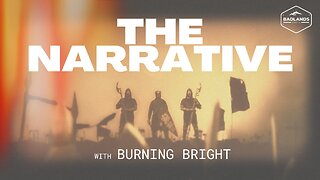Premium Only Content

Degree vs. Experience in Professional Development
The choice between a degree and experience depends on various factors, including your goals, career path, industry, and personal circumstances. Both degrees and experience have their own advantages and can play significant roles in your professional development. Here's a comparison of the two:
Degrees:
Structured Learning: A degree program provides structured learning with a curriculum designed to cover a broad range of topics and concepts related to your field of study.
Foundational Knowledge: Degrees offer foundational knowledge and theoretical understanding that can serve as a strong base for your career. They can provide you with a comprehensive understanding of the subject matter.
Credibility: In some professions and industries, having a degree is a requirement for entry-level positions or for advancement to higher positions. It can lend credibility to your qualifications.
Networking: College or university environments offer opportunities for networking with peers, professors, and industry professionals, which can be valuable for future career opportunities.
Specialization: Degrees often allow you to specialize in a specific area within a field, providing in-depth expertise.
Experience:
Practical Application: Experience provides practical, hands-on application of knowledge gained through real-world situations and challenges.
Skill Development: Experience allows you to develop practical skills that may not be covered extensively in a degree program. These skills are often highly relevant in the workplace.
Adaptability: Real-world experience helps you adapt to changing situations, problem-solving, and critical thinking in dynamic environments.
Proven Track Record: Demonstrable experience, particularly in achieving results and completing projects, can make you a strong candidate for job positions and promotions.
Industry Insights: On-the-job experience provides insights into industry practices, trends, and nuances that might not be covered in academic settings.
In many cases, a combination of both degree and experience is ideal. A degree can provide a solid foundation, while practical experience hones your skills and helps you apply what you've learned in real-world scenarios.
Ultimately, the decision depends on your career goals and the requirements of your chosen field. Some professions place a higher emphasis on degrees (e.g., medicine, law), while others prioritize hands-on experience (e.g., creative arts, entrepreneurship). It's important to research your industry, talk to professionals, and consider your own strengths and aspirations when making this decision.
-
 23:47
23:47
GritsGG
1 day agoThe Forgotten Best Sniper Support AR!
2.47K2 -
 1:15:48
1:15:48
The Pascal Show
14 hours agoMUGSHOTS RELEASED! Emmanuel Haro's Parents Mugshot Released To The Public
1.7K -
 14:45
14:45
BlabberingCollector
17 hours agoKings Cross Station SET LEAKS! | Harry Potter HBO Show Update & News
1.69K -
 33:20
33:20
SB Mowing
9 days agoHealth Struggles + Endless Rain = A Yard Out of Control
10.2K18 -
 1:09:42
1:09:42
Mike Rowe
4 days agoHow Did THIS Dirty Job Make Tommy Mello A Billionaire?! | #447 | The Way I Heard It
67.9K20 -

SpartakusLIVE
10 hours agoThe BADDEST Duo in WZ Exhibits PEAK Physique || Duos w/ Sophiesnazz to start, quads later
165K1 -
 2:49:37
2:49:37
RattlesnakeTV
21 hours ago $0.29 earnedLIVE DEBATE! Lord Jake vs Crazy Feminist
27K12 -
 4:00:42
4:00:42
Badlands Media
13 hours agoThe Narrative Ep. 35: Codex of Truth
92.9K45 -
 3:55:56
3:55:56
Due Dissidence
16 hours agoSchmuley TRASHES Shapiro, Maxwell Sings For Pardon, Uhuru Doc Preview - Live From St. Louis!
48.3K44 -
 LIVE
LIVE
Lofi Girl
2 years agolofi hip hop radio 📚 - beats to relax/study to
418 watching